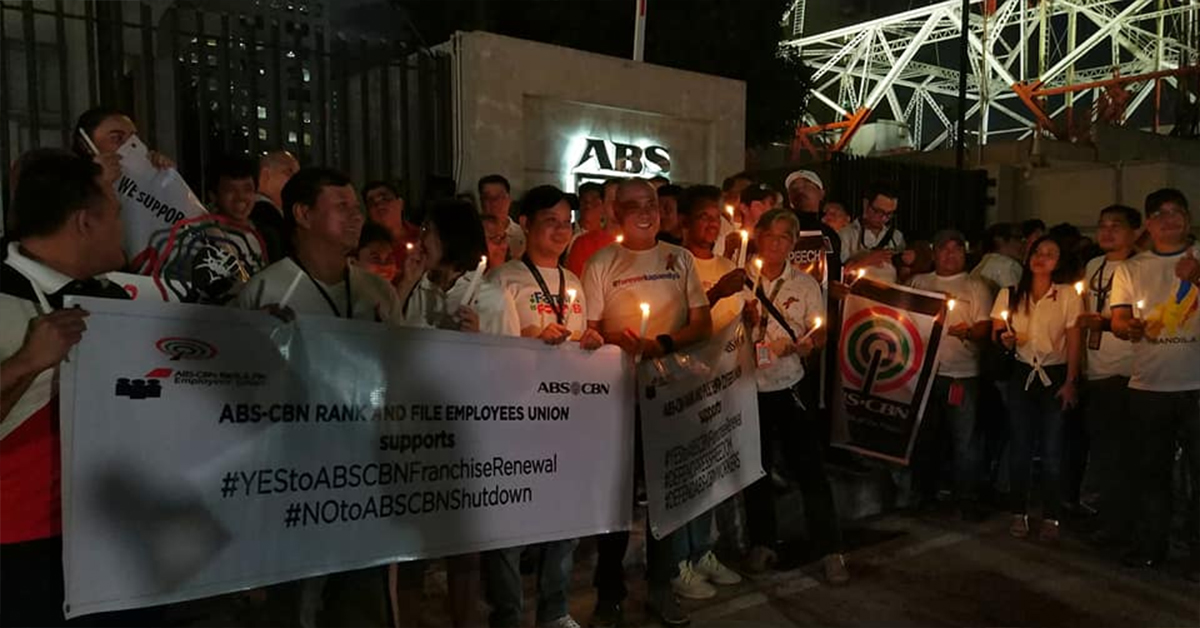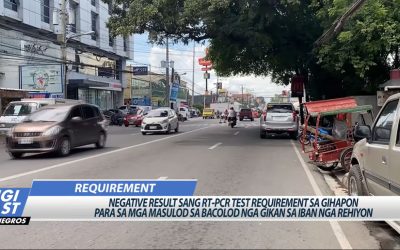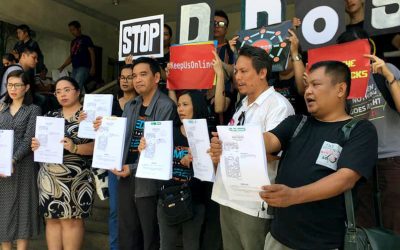Philippine press freedom is worth fighting for: ABS-CBN shutdown reignites the voices of journalists
by Stanley Buenafe Gajete, NUJP National Capital Region chapter
MANILA — Just two days after the celebration of World Press Freedom Day, the Philippine government ordered the closure of the country’s largest broadcast television network after its congressional franchise expired, putting the jobs of nearly 11,000 people at risk.
The National Telecommunications Commission (NTC) — an agency responsible for the supervision, adjudication, and control overall telecommunications services issued on May 5, a cease-and-desist order against ABS-CBN Broadcasting Corp., the first in the network’s history after 65 years of service.
ABS-CBN’s 25-year franchise to operate TV and radio broadcasting stations under Republic Act No. 7966 expired on May 4, 2020.
The NTC directed the TV network to stop operating its various TV and radio broadcasting stations nationwide “absent a valid Congressional Franchise as required by law.”
It also gave the company ten days to respond as to why the frequencies assigned to it should not be recalled.
The Radio Control Law, Act No. 3846, as amended, provides that “(n)o person, firm, company, association, or corporation shall construct, install, establish, or operate a radio transmitting station, or a radio receiving station used for commercial purposes, or a radio broadcasting station, without having first obtained a franchise therefor from the Congress of the Philippines.”
Eleven bills seeking the renewal of franchise of ABS-CBN remains pending before Congress, the earliest was filed in July 2019.
The National Union of Journalists of the Philippines (NUJP) immediately held a candle lighting and an online rally using the #NoToABSCBNShutdown hashtag to condemn the NTC’s order.
While waiting for the result of House hearings for a new franchise, some ABS-CBN programs continued to air through ABS-CBN News cable channel, social media platforms, digital terrestrial box, and via a mobile app.
However, two months after the cease-and-desist order, the House panel on legislative franchises on July 10 formally rejected the bill for a new franchise for ABS-CBN, effectively keeping the network from broadcasting for the duration of the term of President Rodrigo Duterte.
Seventy members of the panel voted yes to a resolution denying the network’s application, only 11 voted to pursue the franchise renewal. Two members inhibited, and one abstained from voting.
The House committees on legislative franchises, along with good government and public accountability facilitated 13 joint committee hearings, which spanned over a month.
Twelve bills were filed with the 18th Congress for the renewal of the TV network’s franchise but the franchise committee only started discussing the pending bills of ABS-CBN after the shutdown order.
Hearings mostly focused on the complaints against the media giants, and news coverage unfavorable to some members of the house.
While hearings were ongoing, the network received an “alias” order from NTC last June 30 directing ABS-CBN to cease-and-desist from operating digital TV transmissions in Metro Manila using Channel 43.
Senate Minority Leader Franklin Drilon said the decision was reminiscent of the dark pages in the history of the Philippine press in 1972 Martial Law.
“Democracy thrives when there is free press and when journalists can exercise complete freedom to do their mandate of reporting facts without fear. But with what happened to ABS-CBN, it has shown that the ‘sword of Damocles’ can be unleashed any time,” Drilon said.
NUJP said that, with the vote to reject the franchise, the chamber lost all claim to represent the people and our interests.
“Today, not only have more than 11,000 people been stripped of their jobs, millions of Filipinos have been deprived of their right to know and their right to choose how to access the information they need to decide on their futures as well as the entertainment that allows them a respite from the hardships of life,” NUJP said.
The Freedom for Media, Freedom for All coalition said that the closure of the broadcast giant will affect the delivery of news, information, and entertainment as some audience are having difficult access to these in time of the COVID-19 pandemic.
Early in 2020, various media organizations, celebrities, and other concerned groups conducted weekly rallies to protest the government’s plan to close the broadcasting company, saying such action will adversely affect press freedom in the country.
But amidst all odds, there is hope.
As they said, there is a rainbow after the rain.
PIRMA Kapamilya
One source of hope is moving for a franchise through a people’s initiative
ABS-CBN could resume its free TV and radio airing if it wins in a national referendum after collecting at least 7 million signatures from across the country showing support for ABS-CBN to get back on air.
The people’s initiative requires the verified signatures of at least 3% of registered voters in each legislative district, and at least 10% of total registered voters in the Philippines.
The Commission on Elections will have to verify each signature. The move or the petition will spark the referendum, where the Filipino citizens will vote on the proposed measure.
The law will be published and will immediately be effective if it passes by a majority vote.
To get the campaign rolling, NUJP set up a booth in front of ABS-CBN’s headquarters in Quezon City to gather signatures.
The said petition can also be accessed and downloaded from www.pirma.ph and PIRMA Kapamilya social media pages.
Through these collective efforts, we can still voice our rights to express, and our rights to speak.
We could reach the finish line, but for now, these small steps are giant leap for everyone.
One step at a time. But the most important move is…
We will never be silent, no matter what.
More from Diarista 2021
After layoffs, Bacolod journalists start digital news platform
After layoffs, Bacolod journalists start digital news platform by Marchel P. Espina, NUJP Bacolod chapterBACOLOD CITY — “I really don’t know,” this was all I could muster when Romeo Subaldo, the...
Alternative and campus press bear brunt of, endure government attacks
Alternative and campus press bear brunt of, endure government attacks by Raymund B. VillanuevaMANILA — The alternative media community and the campus press in the Philippines are being subjected to...
Signing against the sign
Signing against the sign by Raymund B. VillanuevaMANILA — It was the Comprehensive Dangerous Drugs Act of 2002 that first ordered that journalists act as one of the police's witnesses in their...






